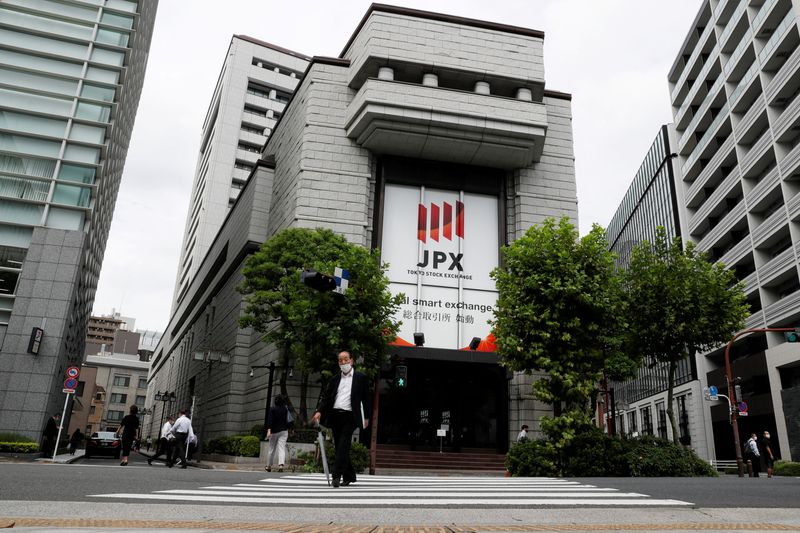By Tom Westbrook
SINGAPORE (Reuters) - Tokyo banking stocks stood within sight of decade highs last week, testing the top of a range that has bound them since the 2008 global financial crisis -- then Silicon Valley Bank collapsed, dashing hopes of a new dawn for banking in Japan.
Losses in Silicon Valley Bank's bond portfolio have highlighted similar risks for Japanese lenders' gigantic foreign bond holdings, which are carrying over 4 trillion yen ($30 billion) in unrealised losses.
At the same time, a radical shift in the global interest rate outlook has dashed bets on policy normalisation - and more lucrative lending - any time soon in Japan.
Three days of selling has the Tokyo Stock Exchange banks index down 16% - its sharpest drop since the days after the 2011 earthquake and tsunami struck Japan. The index led falls in Asia on Tuesday while other markets steadied. (T)
"Japanese banks share with SVB the characteristic of having substantial holdings of bonds, whose prices fall when bond yields rise, creating solvency risk," said Michael Makdad, a senior equity analyst at Morningstar in Tokyo.
Most, he said, have hedged their exposure and stand prepared to manage losses. Japan's banks have also said as much.
But sharp falls in the shares of Japan Post Bank, which Makdad calculated as the most exposed, and some slight wobbles in bond prices for the unlisted Norinchukin - also with heavy exposure - illustrate concern and Japan's vulnerability.
Japan's bondholdings are also huge. Japanese investors are the largest foreign owners of U.S. Treasuries, with financial firms chief among big holders since low domestic loan rates and low yields drive them to find better, but safe, returns elsewhere.
"The difference comes from the loan-to-deposit ratio," said Norihiro Yamaguchi, senior economist at Oxford Economics.
"In Japan, it's quite low compared to other banks in the Asian region, so it means that they rely heavily on bond investments," he said. "With the chronic low interest rate environment in Japan, they actively invest in U.S. Treasuries."
GRAPHIC: Bonds are a huge part of Japanese banks' assets (https://www.reuters.com/graphics/GLOBAL-BANKS/SVB-JAPAN/jnpwyaqoxpw/chart.png)
BONDS GETTING HIT
Most of the time, bond losses aren't a problem for banks, which typically hold their investments to maturity.
But after the worst year in global bond markets for decades, the losses are very big -- foreign bond losses totalled about 3 trillion at the end of December at Japan's top three banks, and analysts at SMBC Nikko calculated another 1.4 trillion yen in unrealised foreign bond losses for regional banks.
Most analysts agree these risks are in hand. An annual Bank of Japan report published on Tuesday said Japanese financial institutions have sufficient capital buffers.
But it also said portfolio losses have swelled at regional banks, and that is where selling pressure has been heaviest as investors fret that smaller lenders will find it harder to navigate market volatility.
Share prices for such lenders had rallied hardest through the autumn as speculation mounted that a shift out of ultra-easy policy settings in Japan was in the offing and the prospect of higher interest rates and better margins lay ahead.
Japan's top regional bank, Resona Holdings, was the biggest loser on the Nikkei on Tuesday, dropping 9.2%, and is now falling harder than peers with a 21% loss in three days.
Japan's biggest financial firm, Mitsubishi UFJ (NYSE:MUFG) Financial Group fell 8.6% on Tuesday and has lost more than 2 trillion yen in market value with a 17% drop in three sessions.

"I think it's about bonds getting hit," said Joshua Crabb, head of Asia-Pacific equities at Robeco. "And maybe some concerns Japanese banks have exposures, and some profit taking," he said. The banking index rose 40% from September to February.
($1 = 134.0900 yen)